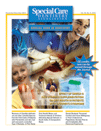Dental students’ perceived comfort and future willingness to treat underserved populations: surveys prior to and immediately after extramural experiences
Spec Care Dentist 30(6): 242-249, 2010
ABSTRACT
The purpose of this study was to compare the perceived change in comfort level and future willingness of senior dental students toward treating 12 different groups of traditionally underserved populations.
Written surveys of senior dental students were conducted prior to and after completing extramural clinical rotations. A Likert-type scale was used to assess student comfort, whereas future willingness to treat these populations was dichotomous.
Over a 13-year period (1992–2004), 560 students completed both surveys. There was an improvement in students’ comfort level for 7 of 12 groups after the community-based assignments, yet there were no differences among population groups based on students’ gender or assignments. There were positive changes for future willingness to treat patients who were mentally compromised, homeless, and non-English speaking, while there was a negative change for treating patients who were frail and elderly and those who were HIV+ or had AIDS. Students with improved comfort levels were more apt to be willing to treat patients who were frail elderly, medically complex, mentally compromised, and non-English speaking in the future.
While student comfort in treating several groups improved after completion of the community-based experiences, there were mixed results for future willingness to treat underserved populations.




